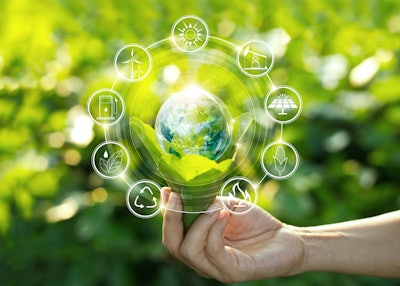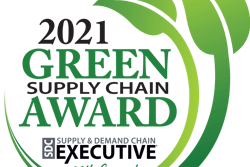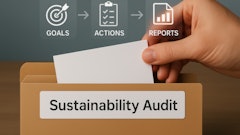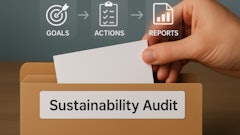
For decades, the data exchanged between a manufacturer and its brand partners has focused on production speed and delivery. Although consumer goods travel to multiple factories and change hands many times throughout the production process, brands haven’t historically collected data about what kinds of practices, especially around environmental and labor standards, occur at each step. Measuring supply chain impact has meant either embarking on a costly auditing exercise or a deep amount of collaboration and trust across value chain partners. Most businesses haven’t had the resources or availability of information to gain this level of granular visibility. As a result, poor practices have continued with devastating results for the planet and the workforce that supports the consumer goods industry.
In response to building pressure from consumers and investors to disclose product impact information, the relationship between manufacturer and brand will need to evolve. Consumer goods brands are asking for a look under the hood, and gathering information about environmental and social impact from each stakeholder is becoming an essential first step in supply chain management. The industry must start building this muscle by recording and sharing sustainability data as it builds stronger, more communicative relationships with its manufacturing partners.
One of the best ways to begin is with a factory self-assessment, a tool to help manufacturers report social and environmental practice data to brands (and ultimately consumers), enabling both parties to set a performance baseline and goals for improvement. Manufacturers will also benefit from embracing the self-assessment now. Those who can readily produce sustainability data will not only strengthen existing relationships with buyers, but also attract new business from brands looking for partners who are documenting and improving on sustainable practices.
The nature of the self-assessment
Self-assessments kickstart the process of delivering product impact data to brands. Suppliers will have achieved different stages of managing their impact, so the data revealed from a self-assessment should serve as a launching point for conversation around sustainability goals. When properly packaged, brands will also be able to derive insights from the data and efficiently report on progress in the future.
For example, some manufacturers will complete their first self-assessment and uncover that they have only an introductory knowledge of their social and environmental impacts. Their brand partners should support them with training and a deeper understanding of how they can improve. Others may reveal strong knowledge of their facility's impact, but that they aren’t performing well. These factories may need more technical support from engineers to discuss energy efficiency opportunities, for example. And, for manufacturers leading in sustainability, self-assessments will reveal strong performance. Ideally, their commitments to a high standard of operations have already fortified relationships with their brands. If not, they have new data to help partners understand the value of their commitment to sustainability. Harvard Business Review research found that products with a sustainability claim delivered nearly $114 billion in sales in 2019, up 29% from 2013. It matters to employees too; according to a Fast Company survey, 70% of respondents said that if a company had a strong sustainability plan, it would affect their decision to stay long term.
As data exchange occurs over time and manufacturers make progress on sustainability goals, brands should look for solutions that can not only collect this self-assessment data, but also track improvements. Inevitably, brands will amass a high volume of data that can’t be manually processed. Solutions that can offer analytics capabilities will help brands accurately measure their progress.
Balancing verification and trust
By nature, the exchange of self-assessed data operates on a high level of trust between manufacturers and brands. However, during the first few years of establishing a relationship, manufacturers will have to work with verification bodies to validate findings. It will behoove manufacturers to complete accurate assessments to ensure a smooth validation process. If brands uncover historic years of misreporting, trust is broken and manufacturers lose credibility. But, with several years of accurately reported data under their belt, manufacturers will reap the benefits of building a reputation of credibility, using data-backed reports to prove their due diligence.
In fact, after several cycles of verifying self-assessments and establishing trust and credibility with partners, brands should consider if self-assessment verification continues to be important. The parties have established relationships and leverage multiple years of strong environmental and social performance that the extra step of bringing in a third-party verifier may no longer be required.
The self-assessment is a launching point for engagement between suppliers and brands, and is intended to help partners align on sustainability goals. Never should a brand use a score or assessment result as a threat to a supplier, but rather a way to encourage the factory to improve. A low score is merely an opportunity for a brand and supplier to collaborate on solutions. Brands have a responsibility to constantly encourage and even incentivize factories to make improvements. When factories heed their assessment results and implement strategies that yield progress, brands should reward their partners. It’s rare for a brand to reward a factory with higher prices, but it should be considered.
Future-proof for a digital transformation
We are on the cusp of a digital transformation that will change how businesses gather sustainability data. In the same way that certain Software-as-a-Service (SaaS) platforms have become ubiquitous to how businesses sell or hire, new technologies are emerging that will bring together an organization’s sustainability data in one place, helping businesses evaluate data from across the supply chain and make informed decisions to reduce impact. Working with factories to implement the self-assessment while bringing on a technology partner that can streamline and deliver findings as contextualized data is a clear way to future-proof.
Think of the self-assessment as the on-ramp to the eventual goal of automated data exchange between brand and factory. Creating a system of regularly-exchanged data will open up new opportunities to optimize sustainability practices, accelerating critical environmental and social progress. Manufacturers and brands will be able to deploy data from multiple years of self-assessments as fodder to make key investments that drive sustainability at each point in production – another key step along the road of revamping the supply chain.

















